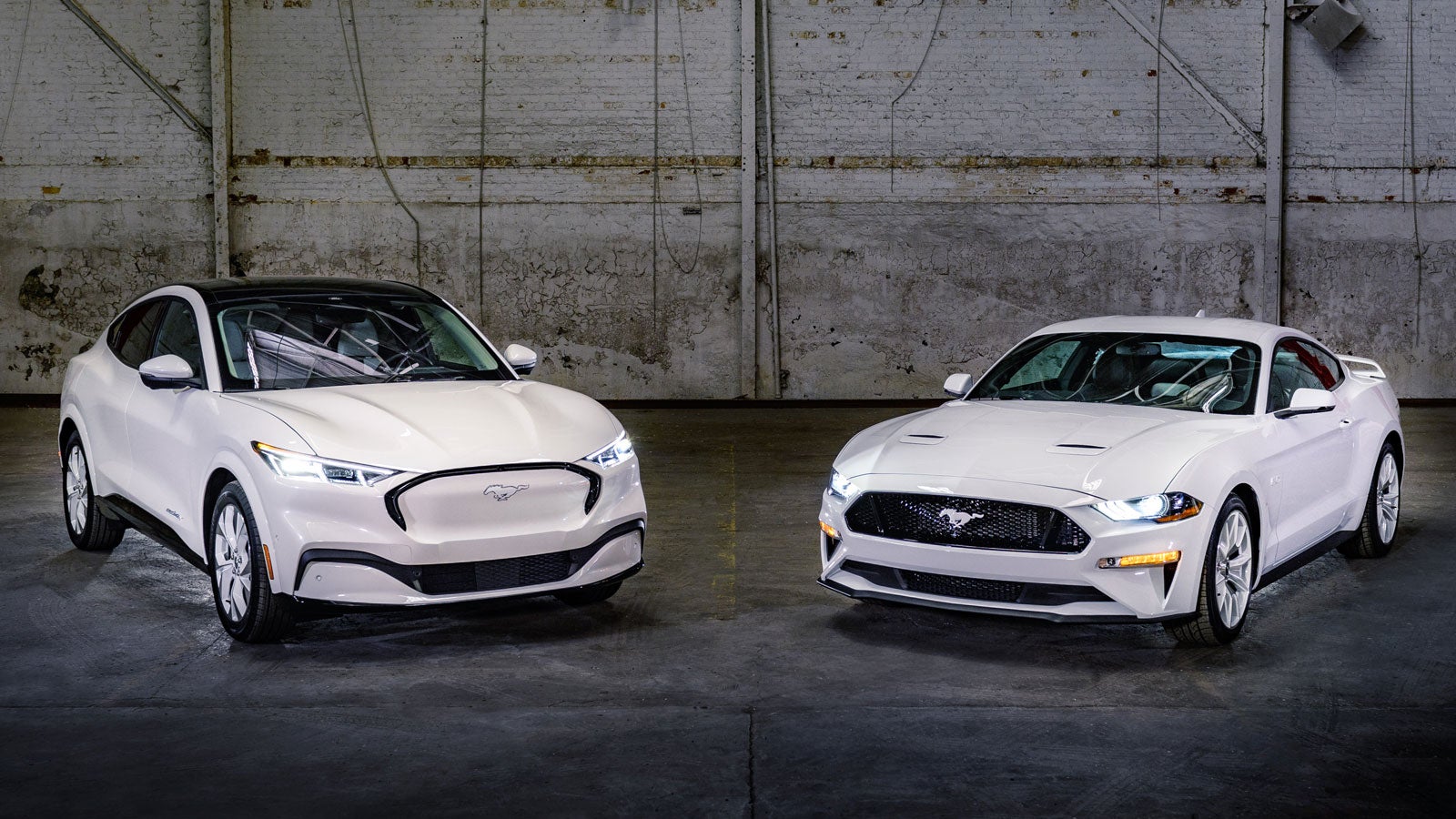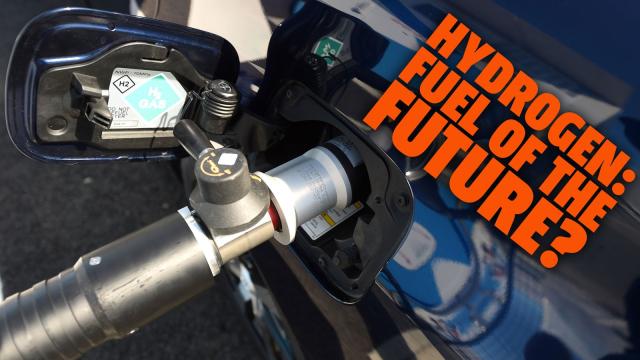There’s no two ways about it, gas-powered cars are on their way out. Europe wants to ban the sale of these cars within the decade and manufacturers have pledged to cut them from their ranges as they strive for more efficient vehicles. But what will replace sweet, sweet gasoline? Well, Ford appears to be eyeing hydrogen as a new source of power.
The Blue Oval has been one of the speedier big name automakers to switch to more environmentally-conscious powertrains. In 2020, it rolled out the all-electric Mustang Mach-E as its first EV, will premiere the electric Transit in the coming weeks and will start deliveries of its F-150 Lightning later this year.
But not content with packing its fleet full of efficient battery packs, Ford is investigating another source of power for its cars of the future.
According to documents filed with the U.S. Patents and Trademark Office, the Mustang maker is plotting a turbocharged hydrogen engine that could replace its gas-powered motors.

Unearthed by Muscle Cars & Trucks, the filings are for a modified engine that relies on direct injection to burn a mix of hydrogen and oxygen. According to the site, the Ford engine will be able to operate with a variable blend of oxygen and hydrogen, depending on the requirements of the car.
Where gas cars would traditionally use a blend of oxygen and gasoline in a ratio of 8:1 at the richest all the way up to 18.5:1 at the leanest, hydrogen-powered cars can use fuel much more sparingly. In fact, Muscle Cars & Trucks suggest the engine could be capable of operating with “an air/fuel mix of at least 68 parts air to 1 part hydrogen.”
In order to closely control this ratio of hydrogen and oxygen, the patented engine would use direct injection to control the flow of both gasses independently. This, Ford says, would see the engines develop 15% more power than gas if the same amount of fuel was used.
On top of that, when hydrogen combusts in an environment like this, the only byproduct is water. Water that floats up into the atmosphere and forms clouds.
But, while that does make hydrogen seem like a miracle fuel for cars of the future, it isn’t without its issues.

Sure, it’s the most abundant element in the universe, but it doesn’t often just float around in its pure form. Because hydrogen is so reactive, it must be extracted and refined to get the pure gas that would be used to power your cars. This, like refining oil into gasoline, uses energy and kicks out emissions, which we’re trying to cut.
Then, there are the risks that come with shipping a tank of hydrogen around everywhere you go.
Yes, the same can be said for gas as it’s a pretty explosive substance, but it pales in comparison to hydrogen. And with the frequency of crashes and collisions on the roads, automakers will need to pile the pounds onto their cars as they debut new, reinforced fuel tanks that can keep drivers, passengers and other road users safe from exploding vehicles.
All that isn’t to say that hydrogen cars aren’t the future. They are one possible future that will likely roll out alongside battery-powered vehicles and super-efficient hybrids.
Which brings us onto the last interesting part about this patent. It sounds like Ford envisages this hydrogen engine as working in tandem with batteries as part of a new hybrid powertrain.

According to Muscle Cars & Trucks:
“The example shown includes a motor-generator unit placed in series between the engine and the transmission, but Ford claims it could be used in a parallel, a series, or a series-parallel hybrid vehicle.”
But Ford isn’t the first automaker to begin investigating hydrogen as an alternative to gas. It follows Toyota and Yamaha in the quest to develop a hydrogen engine that can ignite a spark in traditional ICE-obsessed drivers.
Do you think hydrogen engines are the future of mass market cars, or are EVs the way to go? Or maybe you think there’s another futuristic powertrain on the horizon. Let us know in the comments below.
